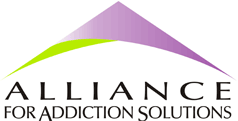High Potency THC Cannabis, What You Need to Know: Problems and Solutions
Wed, Apr 23
|Webinar
Join us for the Alliance for Addiction Solutions Monthly educational forum, featuring with Elizabeth ‘Libby’ Stuyt, MD


Time & Location
Apr 23, 2025, 12:00 PM – 1:00 PM MDT
Webinar
Guests
About the Event
Join us for the Alliance for Addiction Solutions Monthly educational forum, featuring Elizabeth ‘Libby’ Stuyt, MD
This talk will cover how the increasing concentration of THC in cannabis is resulting in increasing problems with cannabis use disorder, psychosis, violence, and suicide, especially in those whose brains are still developing, as well as problems with cannabinoid hyperemesis syndrome. Potential solutions will be discussed.
Objectives:
• Understand how today’s marijuana is not like the marijuana they may have experienced in the past.
• Report what levels of THC are supported by the literature for certain medical conditions and what levels have not been supported by research.
• Describe the effect of THC on those whose brains are still developing – up to age 25.
• Discuss the role high potency THC cannabis plays in addiction, anxiety, depression, suicide, psychosis, violence, cannabinoid hyperemesis syndrome, and cognitive impairment.
About the Speaker:
Elizabeth ‘Libby’ Stuyt, MD is a board-certified Psychiatrist and has worked in the addiction/behavioral
health field since 1990. She was the Medical Director for the Circle Program, a 90-day inpatient
treatment program, funded by the state of Colorado, for persons with co-occurring mental illness and
substance abuse who have failed other levels of treatment from 1999 - 2020. She was instrumental in
helping the Circle Program to become tobacco free in January 2000 and has been a strong advocate of
the need to address all addictions at the same time, including tobacco, to improve outcomes. She has
been actively incorporating complementary treatments into treatment programs, including the 5-point
ear acupuncture NADA (National Acupuncture Detoxification Association) protocol and BST (Brain
Synchronization Therapy), to help patients recover from addiction as well as trauma which often
underlies addiction and chronic pain issues. She retired from clinical practice in 2021 and continues to
do consultant work for treatment programs, trainings on ear acupuncture and BST and presentations to
educate as many people as possible on the un-intended consequences of the commercialization of
marijuana in Colorado, focusing primarily on the deleterious effects of high potency THC on the
developing brain and mental health. She is on the board of the International Academy on the Science
and Impacts of Cannabis (IASIC) and believes that people should be following the science regarding
policies related to cannabis.
719-671-1611
This is a must-attend event for anyone who wants to explore resources of addiction solutions designed to optimize brain function.
